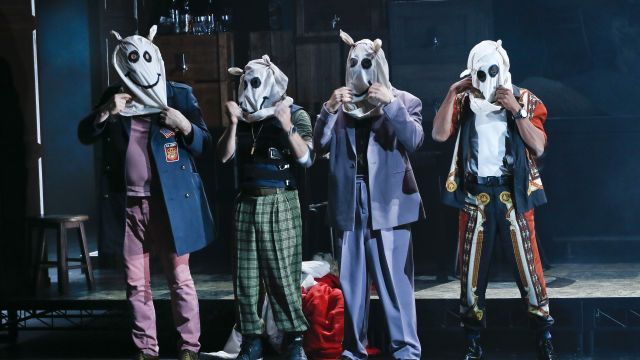Happy End
Salvation Army gal falls for gangster. No, not Guys & Dolls (1950, movie 1955), based on Damon Runyan stories. Elizabeth Hauptmann based her ‘book’ for Happy End, apparently, though very, very loosely, on GB Shaw’s 1905 Major Barbara.
Happy End, first performed in Berlin in 1929, was the follow-up to the Hauptmann-Brecht-Weill trio’s hugely successful Threepenny Opera. My inference is that Brecht, Weill, and Hauptman moved fast – too fast. The details of collaboration on the book, before and after the show was (briefly) on stage, are murky. Hauptmann and Brecht collaborated, then Brecht (as usual) tried to claim sole credit – until, that is, the show tanked after seven performances…
In this spirited production from the Victorian Opera, there are some very enjoyable performances from some very talented people, but despite that and the fact that Happy End has had numerous revivals, from the 1950s onwards, it labours under two major flaws. The first is the book: it’s like a bad first draft, thrown together over a couple of evenings. Based on Brecht and Hauptmann’s caricature of ‘Amerika’ – their way to critique capitalism – and derived from pulp fiction and B-movies, it’s silly, contrived, not that funny, and jejunely didactic.
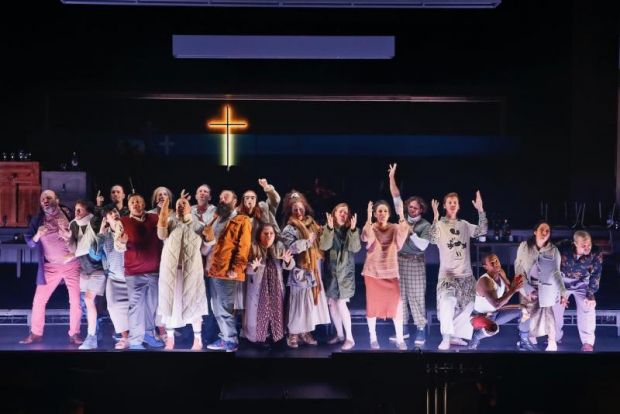
The second problem is the songs, some of which are wonderful, immortal, and the reason Happy End keeps on being revived. (I am still humming them days afterward – and about how many contemporary musicals can you say that?) But not all the songs were written for the show. Some were written separately and beforehand, and then it seems jammed in at arbitrary motiveless random and, no matter how good they are, as songs, they don’t continue the narrative or even comment on the action – as the songs in Threepenny Opera do. They’re show-stoppers all right, but not in a good way.
Do a bunch of inept criminals, hanging out at Bill’s Beer Hall somewhere In Amerika, really remember another beer hall in Bilbao (Bilbao?), and reminisce with the ‘Bilbao Song’? It’s a great song, but why are these guys singing it? There’s also a feel of awkward disjunction when Salvation Army Lieutenant Lillian Holiday (Lucy Maunder) tries to reach and convert ruthless criminal Bill Cracker (Adam Murphy) by singing the ‘Sailors Tango’ to him. Later, she tries to break his heart with the most famous song in the show, ‘Surabaya Johnny’. But is this her story? Was her heart broken by this Surabaya Johnny rat, and that’s why she joined the Salvation Army? Or is it a story Lillian’s heard - someone else’s story?
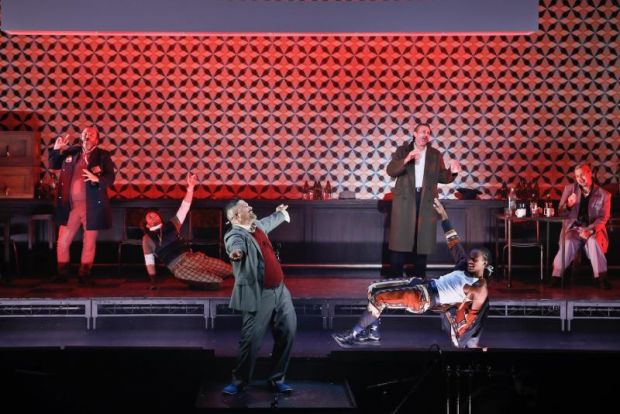
Perhaps I am being too much of a logic Nazi here, but such problems stand out in this production, despite the program notes attempts to rationalise them. They can be overcome, as they must be in the numerous revivals, by style, pizzaz, pace, sight gags and lots of chemistry between Lillian and Bill. Here such things are intermittent.
As for style, I confess that my first disappointment was when the curtain went up and I saw the gang in Bill’s Beer Hall. Marg Horwell is a hugely accomplished designer, but the wardrobe here looks as if the cast of criminals had been sent to their local op-shop for their costumes. And the policeman (Adam Lyon) has no uniform? Is this show period, or contemporary or neither? Were these directorial decisions? Did the wardrobe budget all go on the Salvation Army coats – even if they are nothing like Salvation Army coats? The story and its characters are deliberately pastiche and cliché: why undercut that?
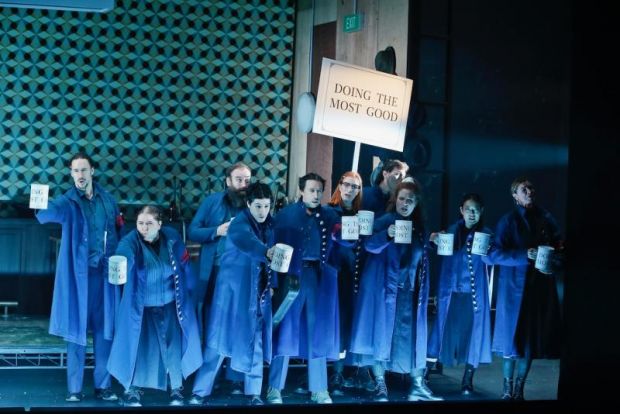
Lucy Maunder, by the way, sings her two big numbers beautifully. It would appear that she is a classically trained soprano, but is that quite right for Lillian and the songs Lillian sings? Director Matthew Lutton, in his program note, mentions the quite different Lotte Lenya, Better Midler and Marianne Faithful as performers who’ve sung these songs. The apocryphal story about Lotte Lenya is that she was cast in Threepenny Opera because she couldn’t sing – or couldn’t sing ‘properly’ or nicely – and that’s what Brecht wanted.
The music – showstoppers, ‘hymns’ and gangster lore – like ‘Big Shot’ – is the mainstay of the show - and Phoebe Briggs superbly gets the Tin Pan Alley dance rhythms out of her eight musicians. Ali McGregor delivers oomph as gang boss, ‘The Fly’, and Adam Murphy has presence and menace as Bill Cracker. Jennifer Vuletic plays it dead straight as Salvo Major Stone – and is all the funnier because of it. And Euan Fistrovic Doidge hits exactly the right comic note as Sam Wurlitzer – as if he knows exactly what kind of show he’s in.
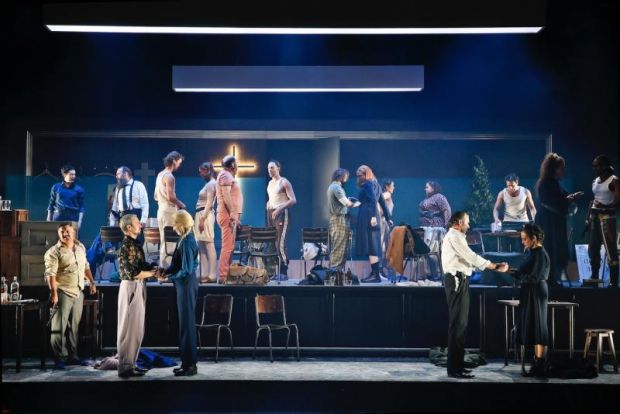
These are the virtues and the enjoyments to be had from this Happy End, a production by a committed, hardworking cast and musicians of a curious clunker of a text interspersed with fabulous music.
Michael Brindley
Photographer: Jeff Busby
Subscribe to our E-Newsletter, buy our latest print edition or find a Performing Arts book at Book Nook.

